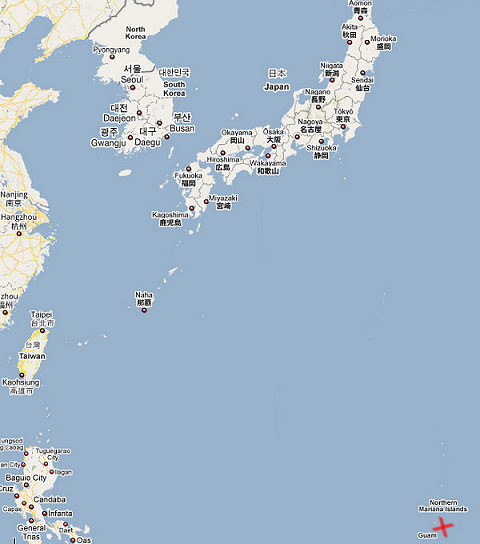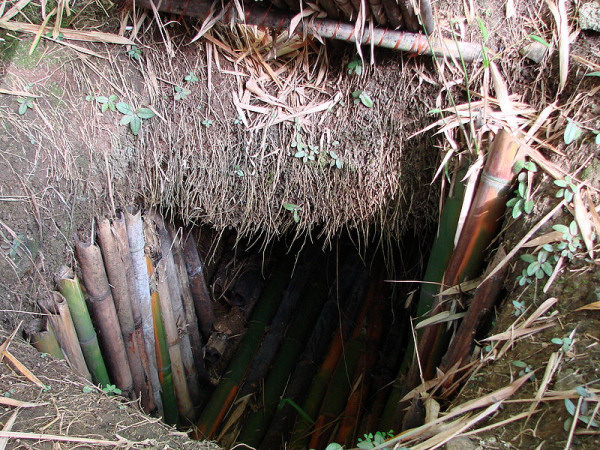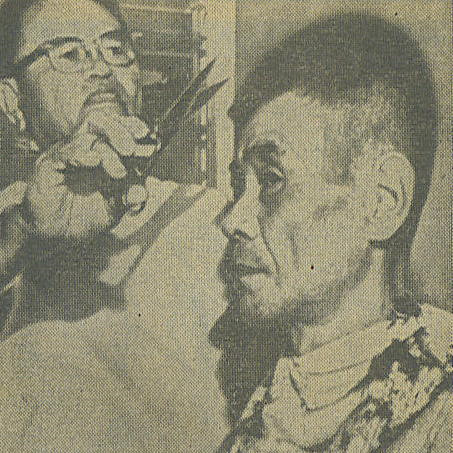38 years ago, on January 24 1972, two residents from Guam discovered Shoichi Yokoi, a Japanese soldier who was hiding in the jungle for… 28 years.
When discovered, Shoichi Yokoi was 56 years old, he looked skinny but he was healthy, was dressed with a uniform woven by himself from hibiscus fibers and he was keeping an accurate record of time. He attacked the two residents with a fishing net, but they managed to capture him and took him to the police station.
His story became famous throughout the world and he became one of the most famous people from Japan.
When he was drafted in the Imperial Japanese Army, in 1941, Shoichi Yokoi was preparing to become a tailor. At the beginning he was part of the 29th Infantry Division from Manchuria and in 1943 he arrived in Guam, with a rank of Sergeant, part of the Supply corps.

On July 21 1944, in the battle that followed the landing of American troops in Guam, the unit of Shoichi Yokoi was annihilated. He managed to survive, but he was cut off from his army so he refused to surrender and took refuge in the jungle. When he returned home, he explained:
“We Japanese soldiers were told to prefer death to the disgrace of getting captured alive”. He was officially listed as killed in September 1944.
He had the necessary knowledge and the amazing strength to live in the jungle for 28 years, waiting for the return of the Japanese Army.
At the beginning, he lived together with two other soldiers in a hole they dug in the ground, consolidated with bamboo walls.

The entrance to the reproduction of Japanese hideout Shoichi Yokoi’s cave on Guam, image via Wikipedia
After several months, because the food was running out, the two other soldiers moved but they remained in contact, visiting each other. However, after 8 years, Shoichi Yokoi found them dead, probably of starvation…
In 1952, Shoichi Yokoi found leaflets and newspapers and read that the war was over, but he thought it was just American war propaganda and remained hidden in the jungle.
Shoichi Yokoi wasn’t the only one living for many years in the jungle. In 1960, two other Japanese soldiers, Minagawa şi Ito, were found and repatriated to Japan.
After he was repatriated, Shoichi Yokoi became a national hero in Japan, and when he went to visit his native village, his visit was televised and thousands of Japanese welcomed him lined along the road and holding flags.
Shoichi Yokoi married several months after his return, wrote a book about his experiences in Guam, appeared regularly on TV and in 1974 he even ran for the Parliament.
In 1981, his dreams became true and he was granted an audience with Emperor Hirohito. The meeting was the greatest honor of his life and he declared to the Emperor:
“Your Majesties, I have returned home. I deeply regret that I could not serve you well. The world has certainly changed, but my determination to serve you will never change".
He lived a simple life, at one moment declaring:
“I can’t understand why cities must burn garbage. My family does not produce garbage. We eat every last bite of food. Parts of food that are not edible are used as fertilizer in my garden".
Shoichi Yokoi died of a hearth attack in 1997, at the age of 82 years.
It’s an amazingly dramatic story about survival. But even more impressive than the story itself is his way of thinking:
“I continued to live for the sake of the Emperor and believing in the Emperor and the Japanese spirit".
For more information:


